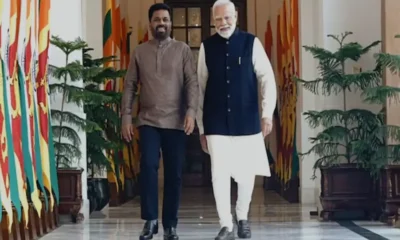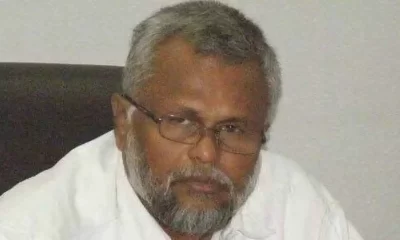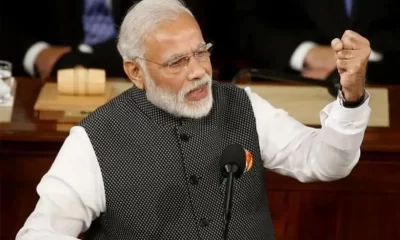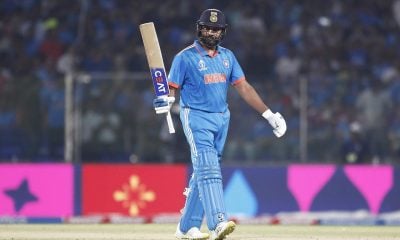The Centre on Friday told the Supreme Court that, in the “interest of the nation”, it will explore alternate routes for Sethusamudram Ship Channel project so that Ram Setu, the 50-km-long the chain of limestone shoals between India and Sri Lanka which holds religious significance for Hindus, is not touched.
In an affidavit filed as a response to BJP leader Subramanian Swamy’s plea, the government said: “The Government of India intends to explore an alternative to the earlier alignment of Sethusamudram Ship Channel project without affecting or damaging the Adam’s bridge/Ram Sethu in the interest of the nation.”
The government said cutting a route through the Ram Sethu, also known as Adam’s Bridge, would be a cause of “socio-economic disadvantage”.
This is part of a one-page affidavit filed by the Shipping Ministry almost four years after the Supreme Court asked the government to ‘come clean’ on the choice of the project’s route and whether it would damage the Ram Sethu.
Under the Sethusamudram project, a 83-km-long deep water channel would have been created linking Mannar with Palk Strait by extensive dredging and removal of the limestone shoals which constitute the Setu.
Swamy had filed a PIL against the Centre’s Sethusamudram Canal project and had sought that the Centre be directed to ‘not touch’ the mythological Ram Setu bridge.
The Union Ministry of Shipping requested the bench, headed by Chief Justice Dipak Misra, to dispose of Swamy’s plea by taking note of the stand taken by the ministry in the affidavit.
The Supreme Court, in November last year, had granted time to the centre to spell out whether it has taken a stand to cut through Ram Setu for the Sethusamudram project.
The Ram Setu or Adam’s Bridge is a continuous stretch of limestone shoals that runs from Pamban Island near Rameshwaram in South India to Mannar Island off the northern coast of Sri Lanka. These marine structures, between the coasts of Tamil Nadu and Sri Lanka, have been at the centre of controversy especially since the Sethusamudram shipping canal project.
According to Hindu mythology, the Ram Sethu was built by Lord Ram with help from an army of monkeys, to rescue his wife Sita from the demon king Ravana, described in the epic Ramayana.
In November, during proceedings in the petition filed by Swamy, the Supreme Court had asked the centre to clarify whether it wants to remove the Ram Setu, connecting the Rameswaram Island in Tamil Nadu with Mannar Island in Sri Lanka, or protect it. Swamy had later told the media that he would “get the Namo [Narendra Modi] government” to tell the court that it would not touch the Ram Setu and instead give the structure a national heritage status, reported India Legal.
According to Hindu mythology and the epic Ramayana, Ram Setu is the bridge that was built by an army of monkeys (the vanara sena) to help Lord Rama and his warriors cross over to Lanka to rescue Sita from the demon king Ravana.
In 2005, during the first term of Prime Minister Dr Manmohan Singh-led UPA regime, a massive controversy had broken out when the government proposed the Setusamudram shipping canal project, said the India Legal report. The project required dredging in the region that the Ram Setu passes through. Predictably, several right-wing Hindu groups, the RSS and its progeny the BJP, had come out in protest against the proposed canal project, arguing that the Congress-led government wanted to destroy an ancient bridge that was built under instruction of Lord Rama and was thus dear to the country’s majority Hindu population.
The project was challenged before the Supreme Court in 2005. In 2007, the Archaeological Survey of India (ASI) filed an affidavit before the top court asserting that Lord Ram was a mythical character and that the Ramayana had no historical basis, thereby implying that claims that the Ram Setu was built on instructions of the Hindu God were unsubstantiated and had no basis in history. The ASI affidavit had triggered an outrage among the Hindu right, something that the BJP relentlessly used to attack the then Congress-led ruling coalition and also disrupt parliamentary proceedings.
Under pressure from the BJP-led Opposition, the UPA government was later forced to withdraw the affidavit filed by the ASI.
Recently the Cabinet Committee on Political Affairs, which has representatives from key NDA constituents, discussed the future of the Setusamudram project. The meeting, chaired by Prime Minister Narendra Modi, discussed various aspects related to the project which envisages dredging a channel across the Palk Strait to provide a shorter navigational route from the east and west coasts of India instead of circumventing Sri Lanka.


 Latest world news11 hours ago
Latest world news11 hours ago
 Latest world news11 hours ago
Latest world news11 hours ago
 India News11 hours ago
India News11 hours ago
 Latest world news2 hours ago
Latest world news2 hours ago















